Owning a dog with missing or bad teeth is no cakewalk, as everything from feeding to grooming is affected. Luckily, some dog foods support canine oral health, and others are easier for pups suffering from dental disease to eat.
Below, we’ll explain how to choose a food for your doggo’s dental needs, share the best dog food for bad teeth, and dish out some tooth-friendly tips about caring for your canine’s chompers.
How to Choose a Dog Food for Pets with Bad (or Missing) Teeth

Before considering specific products, assess your dog’s oral health. A pup requiring preventative care will have vastly different needs than a canine who’s already down a few teeth or dealing with dental disease.
Thankfully, this isn’t too tricky, especially if your vet’s already weighed in.
There are two main options in dog food for bad teeth or preventative care:
- Soft foods: The easy-to-chew texture of wet dog food and fresh dog food are best suited for sniffers with dental troubles like missing, weak, or overall bad teeth. These foods don’t require much jaw pressure, taking the stress off your pup’s teeth and gums and allowing him to safely and comfortably savor each bite.
- Crunchy kibbles: Dry dog food has a firm texture that may help reduce plaque and tartar buildup, making it an ideal choice for preventative oral health care in dogs. Some dry foods are specifically designed for reducing tooth buildup, featuring grooved kibblets for extra cleaning power.
The best dog food for bad teeth is those with Veterinary Oral Health Council (VOHC) approval. Unfortunately, most of these products are available via prescription only, so you’ll need your vet’s help to obtain them.
As with any dog food, ask the following questions when browsing the best dog food for bad teeth to ensure a product is a good fit for your sniffer:
- Does the food meet the AAFCO nutrient profile for your dog’s life stage? Your dog’s dietary needs vary throughout his life. For instance, a large-breed puppy has different nutrition requirements from a senior. Select a food that suits your pup’s current age and adjust as he matures. Ask your vet if you’re unsure about your pup’s life stage.
- Does the food address any health concerns your dog has? Every doggo has unique health needs that often have a nutrition aspect, from an allergy-plagued pup potentially requiring hydrolyzed dog food to a sniffer with skin issues benefiting from dog food for sensitive skin. The best food for your doggo will tackle these needs head-on.
- Is this a food you selected with your vet’s help? If your dog has health or dietary concerns, get your vet’s input on good eats to ensure the healthiest dog food for his needs. Even if your dog has no specific problems, it’s still a good idea to ask your vet for advice before switching to a new dog food.
If a food satisfies these three core rules, you likely have a solid nutrition option for your dog, but you can also drill down more if you have other concerns, considering things like:
- Who formulates the food? The best pet food companies have board-certified animal nutritionists behind every recipe, ensuring they’re complete and balanced as well as appropriate for canines.
- Where is the food made? Whenever possible, stick to made-in-the-USA dog food or ones from New Zealand, Australia, Canada, or Western Europe, as these nations have the strictest pet food safety standards.
- Where does the manufacturer source ingredients from? Similar to where the manufacturing occurs, look for companies that source their ingredients from the nations listed above since they’re more likely to have high standards like routine testing to ensure product integrity and safety.
- What is the primary ingredient? Real meat or fish as the top ingredient is a good sign of a food’s overall quality. It doesn’t tell the whole story, as you still need to check for controversial add-ins and your dog’s sensitivity triggers, but it’s a quick way to weed out low-tier products relying on by-products and generic meat meals for protein sources.
You can investigate many other food aspects, but taste is one of the most important and often overlooked features. What good is a food if your pup won’t touch it?
Ultimately, if your dog likes a food, it agrees with his system (and chewing needs!), and your vet’s cool with it, the food’s likely just fine.
The 7 Best Dog Foods for Dogs with Bad (or Missing) Teeth
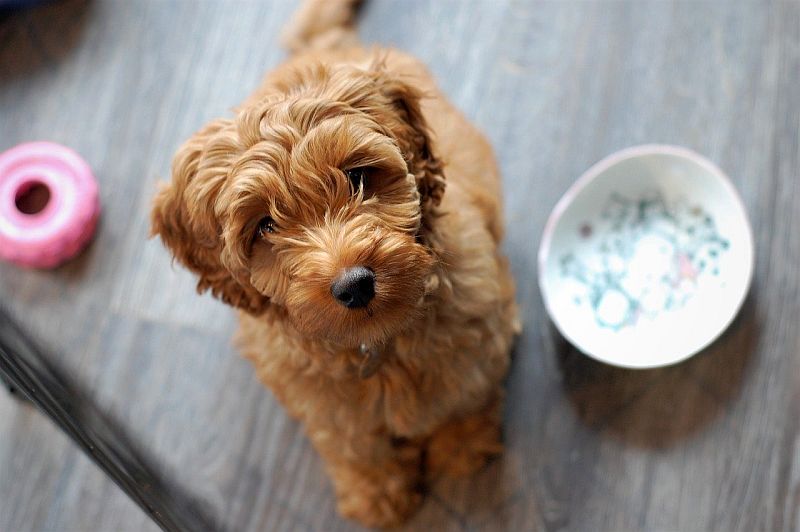
Looking for the best dog food for dogs with bad teeth? Here are our top picks, including fresh food, kibbles, and canned varieties.
1. Ollie
About: Make meal time a breeze for your pup with Ollie, a fresh food in a soft, meaty texture that’s easy to chew and delicious. This customized dog food considers your dog’s age, weight, allergies, activity levels, and more to tailor a unique meal plan, ensuring he won’t pack on pounds, lose healthy weight, or struggle with known intolerances.
Features:
- Meat is the primary ingredient
- All recipes meet the AAFCO standard for all life stages, including the growth of large-sized dogs
- Real produce in every recipe, like spinach and cranberries, for natural sources of antioxidants, fiber, and nutrients
- Made in the USA with human-grade ingredients
Options: Available in Chicken, Turkey, Beef, and Lamb.
Ingredients (Chicken):
Ingredients List
Chicken, Rice, Carrots, Chicken Livers, Peas...,
Potatoes, Spinach, Cranberries, Tricalcium Phosphate, Salmon Oil, Salt, Taurine, Zinc Gluconate, Vitamin E Supplement, Ferrous Sulphate, Copper Amino Acid Chelate, Manganese Amino Acid Chelate, Cholecalciferol (Vitamin D3) Supplement, Riboflavin (Vitamin B2), Thiamine Hydrochloride (Vitamin B1), Pyridoxine Hydrochloride (Vitamin B6), Potassium Iodide
Pros
- Softer texture isn’t a challenge for dogs with missing or weak teeth to eat
- Slow-cooked at low temperatures to preserve flavor (a hit with picky pups!)
- Hard to top the quality of human-grade ingredients
Cons
- Requires refrigeration to prevent spoilage
- Unfortunately, customized food isn’t cheap, so pricing is up there
We did a deep dive into all things Ollie with our in-depth Ollie review. Learn more about this customized canine cuisine, including where and how it’s made, the ordering process, and more. Plus, see how one of the K9 of Mine taste-testers liked it!
2. NomNom
About: Make dinnertime easier for your dental-challenged doggo with the fresh dog food NomNom, a delicious mix of real meat and vegetables you can see. Prepackaged and portioned to your dog’s unique dietary needs, this dog food is delivered right to your door, fully prepared for ultra-convenience.
Features:
- Real meat is always the first ingredient
- Board-certified animal nutritionists formulate all NomNom recipes
- Every recipe features a blend of fruits and vegetables for nutrients, color, and flavor
- Made in the USA
Options: Offered in Beef Mash, Chicken Cuisine, Pork Potluck, and Turkey Fare.
Ingredients (Turkey Fare):
Ingredients List
Ground Turkey, Brown Rice, Eggs, Carrots, Spinach...,
Dicalcium Phosphate, Citric Acid, Vinegar, Potassium Chloride, Calcium Carbonate, Salt, Water Sufficient For Processing, Fish Oil, Choline Bitartrate, Vitamin E Supplement, Iron Amino Acid Chelate, Taurine, Natural Flavor, Zinc Gluconate, Copper Gluconate, Niacin (Vitamin B3), Manganese Gluconate, Vitamin A Supplement, Thiamine Mononitrate (Vitamin B1), Pyridoxine Hydrochloride (Vitamin B6), Riboflavin (Vitamin B2), Cholecalciferol (Source Of Vitamin D3), Potassium Iodide, Folic Acid, Vitamin B12 Supplement
Pros
- Texture is easy for dogs with few or no teeth to eat
- Portioned to meet your pup’s unique nutrient needs
- Human-grade ingredients offer top-of-the-line quality
Cons
- Needs room in your freezer or refrigerator
- Isn’t the cheapest option available
3. The Honest Kitchen Whole Grain Turkey Recipe
A tasty and affordable dog food that comes in dehydrated form and is made from human-grade ingredients.
Get 30% off your order with the code K930!
About: The Honest Kitchen’s Whole Grain Turkey Recipe is a dehydrated food that’s simple for mutts with missing or weak teeth to eat once rehydrated into a mixture of meat, veggies, and grain. Prepared using gentle methods to protect flavor and nutrients, this premium pup food is packaged in compact boxes, with a 10-pound one making a whopping 40 pounds of food.
Features:
- Real meat is always the first ingredient
- Healthy fats nourish your pup’s skin and coat
- Good mix of produce in every recipe
- Made in the USA with human-grade ingredients sourced from around the world
Options: Available in Whole Grain Turkey, Fish & Oat, Whole Grain Chicken, and Whole Grain Beef. Grain-free recipes are also available for dogs with grain allergies.
Ingredients (Turkey):
Ingredients List
Dehydrated Turkey, Organic Oats, Dehydrated Potatoes, Organic Flaxseed, Dehydrated Carrots...,
Dehydrated Cabbage, Dried Apples, Dehydrated Honey, Dehydrated Organic Kelp, Dried Garlic, Tricalcium Phosphate, Potassium Chloride, Choline Chloride, Zinc Amino Acid Chelate, Iron Amino Acid Chelate, Potassium Iodide, Copper Amino Acid Chelate, Sodium Selenite, Taurine, Vitamin E Supplement, Vitamin B12 Supplement, Thiamine Mononitrate (Vitamin B1), D- Calcium Pantothenate (Vitamin B5), Riboflavin (Vitamin B2), Vitamin D3 Supplement
Pros
- Texture of the rehydrated mash is ideal for pups with dental issues
- Made with high-quality, human-grade ingredients
- Most dogs find the flavor tongue-waggingly good
Cons
- Pricier than some other foods on our list
- Dehydrated foods can be a mess to serve
4. Blue Buffalo Homestyle Recipe
A tasty wet food made with nutritious proteins, whole grains, produce, vitamins, and natural antioxidants.
About: Safely feed your floof an easy-to-chomp canned option with Blue Buffalo Homestyle Recipe, a budget-friendly mix of real meat, nutrient-rich liver, produce, and grains in a soft pâté texture. Its omega fatty acids support your canine’s coat, while broth boosts the flavor (and your dog’s hydration!).
Features:
- Can be served on its own or paired with softened kibble for easier eats
- Made without corn, soy, wheat, by-products, and artificial flavors and preservatives
- Meets the AAFCO nutrient profile for adult maintenance
- Made in the USA with globally-sourced ingredients
Options: Available in Chicken, Beef, Lamb, and Turkey Meatloaf.
Ingredients (Chicken):
Ingredients List
Chicken, Chicken Broth, Chicken Liver, Carrots, Peas...,
Sweet Potatoes, Brown Rice, Barley, Oatmeal, Guar Gum, Potassium Chloride, Salt, Flaxseed, Blueberries, Cranberries, Carrageenan, Cassia Gum, Zinc Amino Acid Chelate, Iron Amino Acid Chelate, Choline Chloride, Vitamin E Supplement, Copper Amino Acid Chelate, Manganese Amino Acid Chelate, Sodium Selenite, Thiamine Mononitrate (Vitamin B1), Cobalt Amino Acid Chelate, Niacin Supplement (Vitamin B3), Calcium Pantothenate (Vitamin B5), Vitamin A Supplement, Riboflavin Supplement (Vitamin B2), Biotin (Vitamin B7), Vitamin B12 Supplement, Potassium Iodide, Pyridoxine Hydrochloride (Vitamin B6), Vitamin D3 Supplement, Folic Acid (Vitamin B9).
Pros
- An affordable yet high-quality canned option
- Pate texture is easy for most dogs to eat, even those with no teeth
- Taste is a high point with most pups
Cons
- Some pet parents prefer pea-free recipes to avoid the potential link to DCM
- Picky pups may prefer a stew-style canned food over pate
5. Purina Pro Plan Veterinary Diet DH
A crunch-packed kibble designed to stop dental problems before they start by preventing plaque and tartar accumulation.
About: Prevent dental problems before they start (or slow their roll!) with Purina Pro Plan Veterinary Diet DH, a vet-prescribed kibble featuring a crunchy texture to help remove plaque and tartar with every mouthful. As a bonus, antioxidants are included to provide immune support.
Features:
- Real chicken is the main ingredient, followed by protein-rich chicken meal
- Formulated by animal nutritionists and veterinarians
- Has the VOHC seal of approval
- Made in the USA using internationally sourced ingredients
Options: Available in a single chicken-based recipe.
Ingredients:
Ingredients List
Chicken, Chicken Meal, Brewers Rice, Ground Yellow Corn, Ground Wheat...,
Corn Gluten Meal, Animal Fat Preserved With Mixed-Tocopherols, Dried Beet Pulp, Brewers Dried Yeast, Powdered Cellulose, Dried Egg Product, Animal Liver Flavor, Glycerin, Salt, Potassium Chloride, Calcium Carbonate, Phosphoric Acid, Tetra Sodium Pyrophosphate, Mono And Dicalcium Phosphate, Vitamin E Supplement, L-Lysine Monohydrochloride, Choline Chloride, L-Ascorbyl-2-Polyphosphate (Vitamin C), Zinc Sulfate, Ferrous Sulfate, Manganese Sulfate, Niacin (Vitamin B-3), Potassium Sorbate (A Preservative), Vitamin A Supplement, Calcium Pantothenate (Vitamin B-5), Thiamine Mononitrate (Vitamin B-1), Copper Sulfate, Vitamin B-12 Supplement, Riboflavin Supplement (Vitamin B-2), Pyridoxine Hydrochloride (Vitamin B-6), Garlic Oil, Folic Acid (Vitamin B-9), Menadione Sodium Bisulfite Complex (Vitamin K), Calcium Iodate, Vitamin D-3 Supplement, Biotin Vitamin B-7), Sodium Selenite
Pros
- Formulated by canine experts to remove plaque and tartar
- Several owners report improved teeth appearance after starting pups on the food
- Taste gets a paw’s up from most doggy diners
Cons
- Pricing is high
- More protein options would be ideal, as not every dog tolerates chicken
- Requires a veterinary prescription to obtain
6. Purina Pro Plan Veterinary Diets DH Small Breed
A veterinary diet formulated to clean away tooth buildup in the mouths of small sniffers.
About: Support your dog’s dental health with Purina Pro Plan Veterinary Diets DH Small Breed, a grain-inclusive food with kibblets petite enough for pint-sized pups and crunchy for powering away plaque. Designed by a team of vets and animal nutritionists, this kibble meets the AAFCO nutrient profile for adult dog maintenance.
Features:
- Chicken is the top ingredient
- Glucosamine aids in joint health
- Accepted by the Veterinary Oral Health Council (VOHC) as a way to control tartar
- Made in the USA using global ingredients
Options: Available in a single chicken recipe.
Ingredients:
Ingredients List
Chicken, Chicken Meal, Brewers Rice, Ground Yellow Corn, Ground Wheat...,
Corn Gluten Meal, Animal Fat Preserved With Mixed-Tocopherols, Dried Beet Pulp, Powdered Cellulose, Brewers Dried Yeast, Dried Egg Product, Animal Liver Flavor, Glycerin, Salt, Potassium Chloride, L-Lysine Monohydrochloride, Calcium Carbonate, Tetra Sodium Pyrophosphate, Phosphoric Acid, Vitamin E Supplement, Mono And Dicalcium Phosphate, Choline Chloride, Zinc Sulfate, L-Ascorbyl-2-Polyphosphate (Vitamin C), Ferrous Sulfate, Thiamine Mononitrate (Vitamin B-1), Manganese Sulfate, Niacin, (Vitamin B-3), Potassium Sorbate (A Preservative), Vitamin A Supplement, Calcium Pantothenate (Vitamin B-5), Copper Sulfate, Vitamin B-12 Supplement, Riboflavin Supplement (Vitamin B-2), Pyridoxine Hydrochloride (Vitamin B-6), Garlic Oil, Folic Acid (Vitamin B-9), Calcium Iodate, Menadione Sodium Bisulfite Complex (Vitamin K), Vitamin D-3 Supplement, Biotin Vitamin B-7), Sodium Selenite
Pros
- Designed by vets to aid in small-breed dental health
- Most dogs enjoy the taste
- Several owners noted the kibble seemed to reduce plaque
Cons
- Additional protein options are needed
- Some owners wish the kibblets were smaller
- Prescription required, as it’s a veterinary diet
7. Hill’s Science Diet Oral Care
About: Prevent dog dental troubles from rearing their ugly heads with Hill’s Science Diet Oral Care, a dry dog food with textured kibblets for gently cleaning your pup’s teeth as he eats. This grain-inclusive recipe features a mix of carb sources for energy, plus produce like cranberries and broccoli for natural servings of fiber and antioxidants.
Features:
- Real chicken is the first ingredient
- Omega fatty acids nourish your dog’s skin and coat from the inside out
- Meets AAFCO standards for adult dog maintenance
- Made in the USA with globally-source ingredients
Options: Offered in a single recipe: Chicken, Rice & Barley.
Ingredients:
Ingredients List
Chicken, Whole Grain Wheat, Powdered Cellulose, Brown Rice, Whole Grain Corn...,
Corn Gluten Meal, Chicken Fat, Cracked Pearled Barley, Chicken Meal, Whole Grain Sorghum, Wheat Gluten, Chicken Liver Flavor, Soybean Mill Run, Pork Liver Flavor, Soybean Oil, Lactic Acid, Fish Oil, Potassium Chloride, Calcium Carbonate, Iodized Salt, Choline Chloride, Vitamin E Supplement, L-Ascorbyl-2-Polyphosphate (source of Vitamin C), Niacin Supplement, Thiamine Mononitrate, Vitamin A Supplement, Calcium Pantothenate, Riboflavin Supplement, Biotin, Vitamin B12 Supplement, Pyridoxine Hydrochloride, Folic Acid, Vitamin D3 Supplement, Dicalcium Phosphate, Ferrous Sulfate, Zinc Oxide, Copper Sulfate, Manganous Oxide, Calcium Iodate, Sodium Selenite, Taurine, Oat Fiber, Mixed Tocopherols for freshness, Natural Flavors, Beta-Carotene, Apples, Broccoli, Carrots, Cranberries, Green Peas.
Pros
- Crunchy and grooved kibblets made specifically to clean teeth
- Several owners report a reduction in canine plaque after feeding
- Most dogs seem to enjoy the taste
Cons
- Controversial ingredients like green peas and corn give some owners pause
- Additional protein options are needed for dogs with sensitivities (or those who dislike chicken)
Why Do Dogs Suffer from Bad or Missing Teeth?
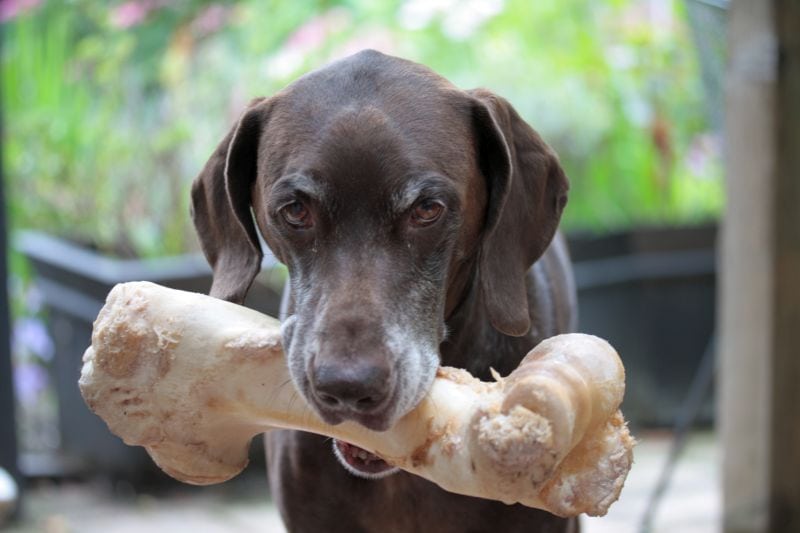
Like humans, dogs aren’t immune to dental drama, with tooth issues more prevalent in pups than you’d think, particularly in small dogs and seniors. A key difference is that while humans often suffer from tooth decay, most dog dental issues are gum-based.
Bad or missing teeth in dogs are typically caused by:
- Improper formation: Some dogs are missing teeth or dealing with dental issues because the teeth never grew or came in distorted. This is more common among brachycephalic dog breeds with shortened skulls at risk of dental crowding.
- Trauma or injury: Your pup can fracture a tooth gnawing on a chew that’s too hard or while playing with a toy like a tug. Performing the fingernail test is essential before offering a chew, as many popular picks like elk antlers don’t pass the test. Avoid yanking tugs and toys your pup has, too.
- Gum disease: Bacterial buildup can wreak havoc on your dog’s gums, loosening teeth and leading to jawbone damage over time. Ongoing, routine dental care is a must, including brushing your floof’s teeth with dog toothpaste.
Regular veterinary exams include a peek in your dog’s mouth, potentially spotting problems before they get out of hand. Always schedule a vet visit if concerned about your dog’s teeth or gums. Sooner is always better than later.
Which Breeds Are Prone to Dental Problems?
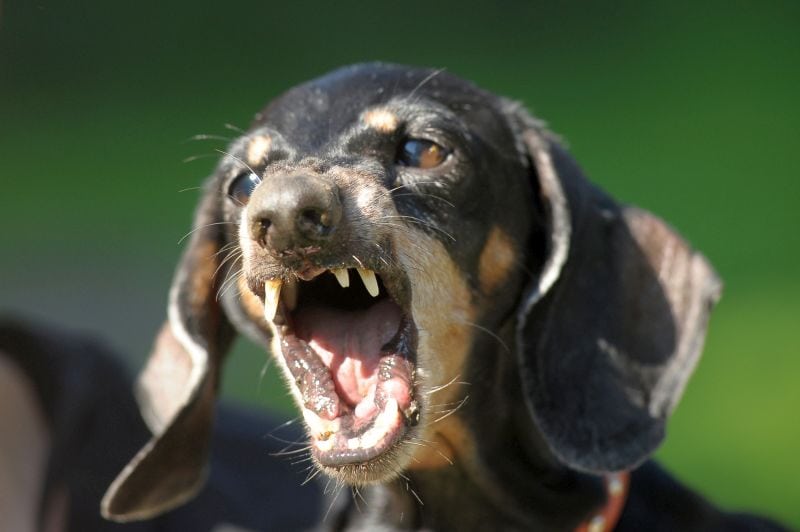
All breeds could develop dental problems if their teeth aren’t taken care of properly, but certain breeds are affected more often than others. A few of the breeds most likely to suffer from dental problems include:
- Dachshunds
- Yorkshire terriers
- Pugs
- Chihuahuas
- Boxers
- Collies
- Shih tzus
- Labrador retrievers
What Are Some of the Most Common Oral Health Problems in Dogs?
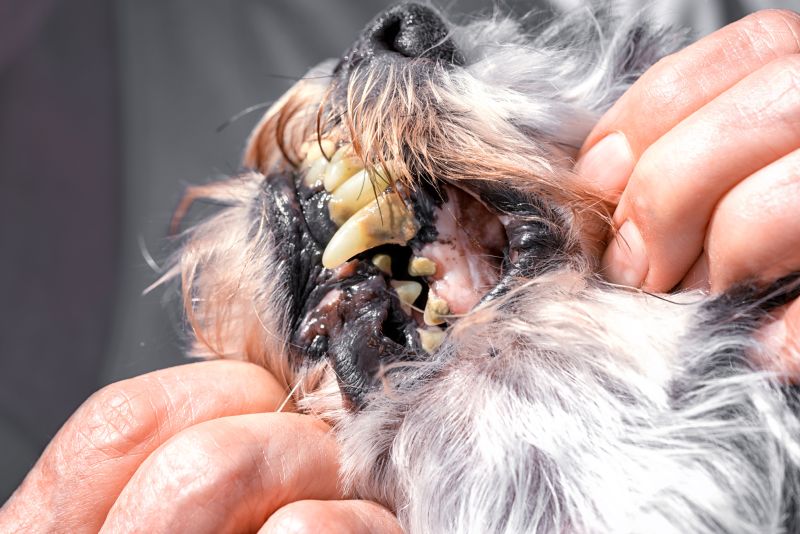
Unfortunately, oral health issues aren’t an anomaly in the dog world. Several common concerns occur in canines, including everything from freak injuries to gum disease. Knowing about them helps you stay on top of your pup’s oral health, ensuring his teeth and gums remain as healthy as possible.
The most common oral health issues seen in dogs are:
- Periodontal disease: This serious gum affliction causes tooth loss and painful inflammation of your dog’s gums. It can also introduce bacteria to your dog’s bloodstream, potentially affecting his heart and other organs. Symptoms include foul breath, bleeding gums, excessive drooling, mouth pawing, and reluctance to chew or eat.
- Tooth fracture: Your dog’s teeth may be hard, but they’re fragile, with a chomp on a toy or even a fall possibly causing a cracked or entirely broken tooth. Your dog’s teeth can also fracture if weakened by decay.
- Plaque: A soft, sticky film of bacteria that forms on dogs’ teeth. Over time, it can harden and become tartar. You can get rid of plaque with daily brushing.
- Oral tumors: They’re fortunately not extremely common, but dogs can suffer from tumors of the mouth. These obviously require veterinary assistance to treat, so be on the lookout for any unusual bumps or swelling in your dog’s mouth and report them to your vet promptly.
- Abscesses: Essentially a swollen area full of puss (apologies for the imagery), abscesses are often triggered by a bacterial infection. Abscesses can occur anywhere on your dog’s body, but that certainly includes the mouth. Treatment will typically involve a course of antibiotics and perhaps the draining of the abscess.
Oral health issues can affect dogs at any age, though seniors are most commonly affected. Still, annual vet exams are a must for all pups, along with regular dental care.
Is There Anything I Can Do to Stop Periodontal Disease?

Periodontal disease isn’t inevitable. There are ways to prevent this tooth-threatening (and potentially life-threatening) illness, starting when your dog’s a puppy, but you can also stop it if you catch it early enough later on in life (or at least prevent it from getting worse!)
To stop periodontal disease:
- Brush your dog’s teeth regularly with a quality dog-safe toothpaste
- Feed crunchy food to reduce plaque between toothbrushing
- Provide gnawables like dental chews, bully sticks, or long-lasting chews
- Offer crunchy snacks like carrots, broccoli, and other dog-safe vegetables
- Keep up with regular vet visits to spot problems before they escalate
- Schedule deep cleanings as needed
If your vet suspects periodontal disease in your pup, he or she will devise a treatment plan to help your sniffer feel, look, and smell his best again in no time, potentially saving his teeth and you lots of money in the long run.
How Do I Brush My Dog’s Teeth?
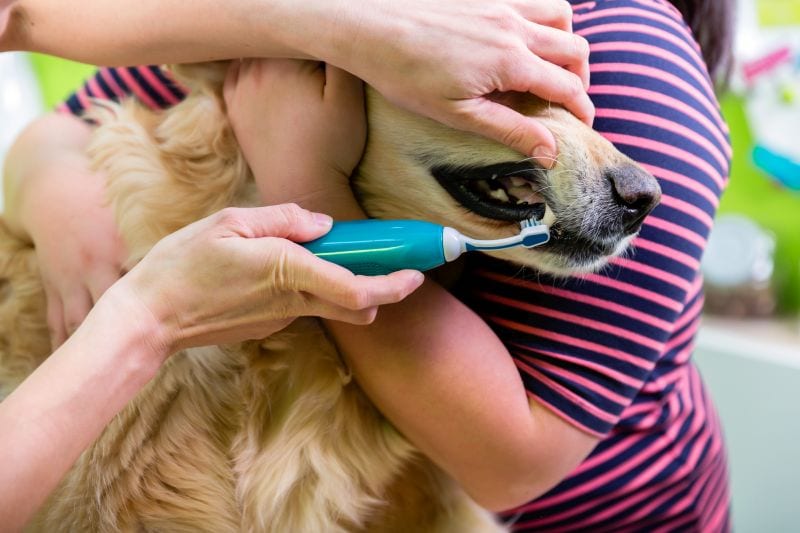
Toothbrushing is sadly one of the most overlooked aspects of canine care. While it isn’t always pleasant for pups at first, with practice and a tasty dog-friendly toothpaste, most pups learn to tolerate it.
To brush your dog’s teeth:
- Purchase a dog-specific toothpaste: Never use human toothpaste, as it has chemicals that can harm canines.
- Use a finger brush, toothbrush, or gauze over your finger: Brush over your dog’s teeth in small, circular motions, focusing near the gumline.
- Repeat regularly: Brush your dog’s teeth a few times a week to remove buildup. Daily brushing is best, but if you can’t swing it, shoot for at least three times a week to keep the ickies at bay.
It’s easiest to get your dog used to having his teeth brushed as a puppy, but it’s possible to teach an old dog to accept regular toothbrushing. Just remember your Ps: patience, practice, and plenty of rewards!
You can make a DIY doggy toothpaste in a pinch if you run out of dog toothpaste mid-brush. These aren’t ideal for long-term use, but they’re an easy fill-in between shopping trips.
Dog Food for Bad Teeth: FAQ
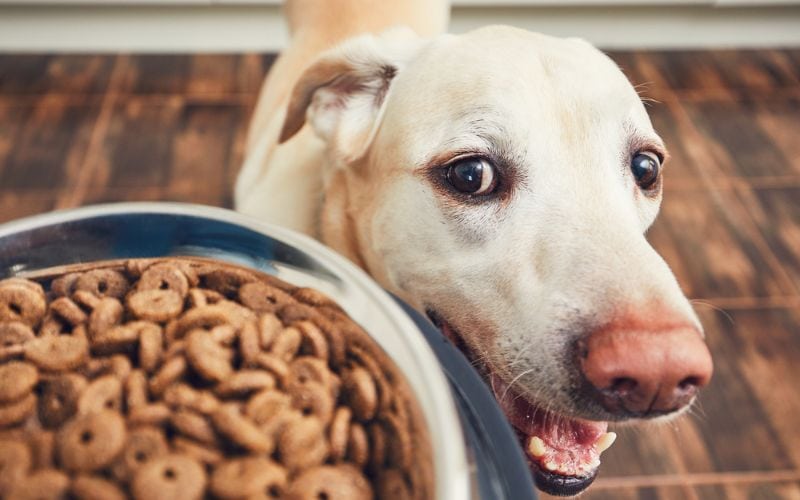
Dog dental health isn’t the easiest topic, and knowing how to sort the best dog food for bad teeth from the rest can be challenging. We’ve rounded up the top questions and concerns surrounding the topic and answered them to make it a little easier.
What can I feed a dog with bad teeth?
The best food for a dog with bad teeth is one he can comfortably eat. In many cases, this means wet or fresh dog food, but it can also include kibble you’ve softened with water.
If your dog still has all his teeth functioning just fine, but they’re prone to buildup, look for crunchy kibbles to help remove plaque between regular toothbrushing. Some are made specifically for oral care, like Hill’s Science Diet Oral Care. You can also get prescription options with your vet’s help, such as Purina Pro Plan Veterinary Diet DH.
How do I stop my dog’s teeth from rotting?
Regular toothbrushing is the best defense against canine tooth decay and gum disease. This means brushing your dog’s teeth several times a week. Establish a routine that’s easy to follow, such as Mondays, Wednesdays, and Fridays, and stick to it. While brushing, check your dog’s teeth and gums for changes, like cracks or discoloration, and report them to your vet.
Another must is to see your vet annually to have your dog’s oral health assessed. These nose-to-tail checks can spot problems before they spread that you may miss. They’re also a chance for your vet to evaluate how well your dog’s toothbrushing routine works.
Can bad dog teeth be fixed?
Your vet can clean away dental buildup with a deep cleaning under sedation, but in many cases, severely damaged teeth are extracted to prevent the spread of infection and pain while eating. Practicing regular toothbrushing with your pup is the best way to avoid tooth extraction and deep cleanings.
Can dogs survive with rotten teeth?
Dogs can technically survive with rotten teeth, but they’d be at risk of complications like organ damage, systemic infection, and more. A dog with rotten teeth would also be in excruciating pain, making eating difficult, if not impossible.
Always have rotten or weak teeth addressed by your vet promptly to avoid complications.
At what age do dogs’ teeth start rotting?
Dogs’ teeth can start rotting at any age, though small breeds may experience issues earlier in life than larger pups. Begin a regular tooth-care regimen in puppyhood to protect your dog’s teeth for life.
How long can dogs live with periodontal disease?
Untreated periodontal disease can take years off your pup’s life, so it’s not something to ignore. Not only can periodontal disease affect your dog’s organs, but it can also lead to ongoing pain. If you suspect your pup has periodontal disease, contact your vet ASAP.
Does pet insurance cover dog dental work?
Sometimes. It depends on your insurance plan and what kind of coverage you have. Be sure to check out our article about the most popular health insurance plans to compare some of the best options out there.
Can you use human toothpaste for dogs?
No, it’s not a good idea to use human toothpaste when brushing your dog’s teeth. Human toothpaste may contain xylitol, which is highly toxic to pets. There are lots of types of toothpaste you can buy that are specially formulated for dogs and come in flavors like beef and chicken.
Are raw bones good for a dog’s dental health?
No. There isn’t any compelling evidence that they help clean teeth, yet there is plenty of evidence that they often lead to broken teeth.
Dog dental health is tough, but with regular care and a watchful eye, you can keep your pup’s teeth looking and feeling their best throughout his life. You can also start helping your dog achieve healthier teeth today by changing your routine, whether switching to a dog food made for oral health or upping your toothbrushing game.
Does your dog eat any of our picks for the best dog food for bad teeth? Is there another option he enjoys? Share with us in the comments. We’d love to hear.
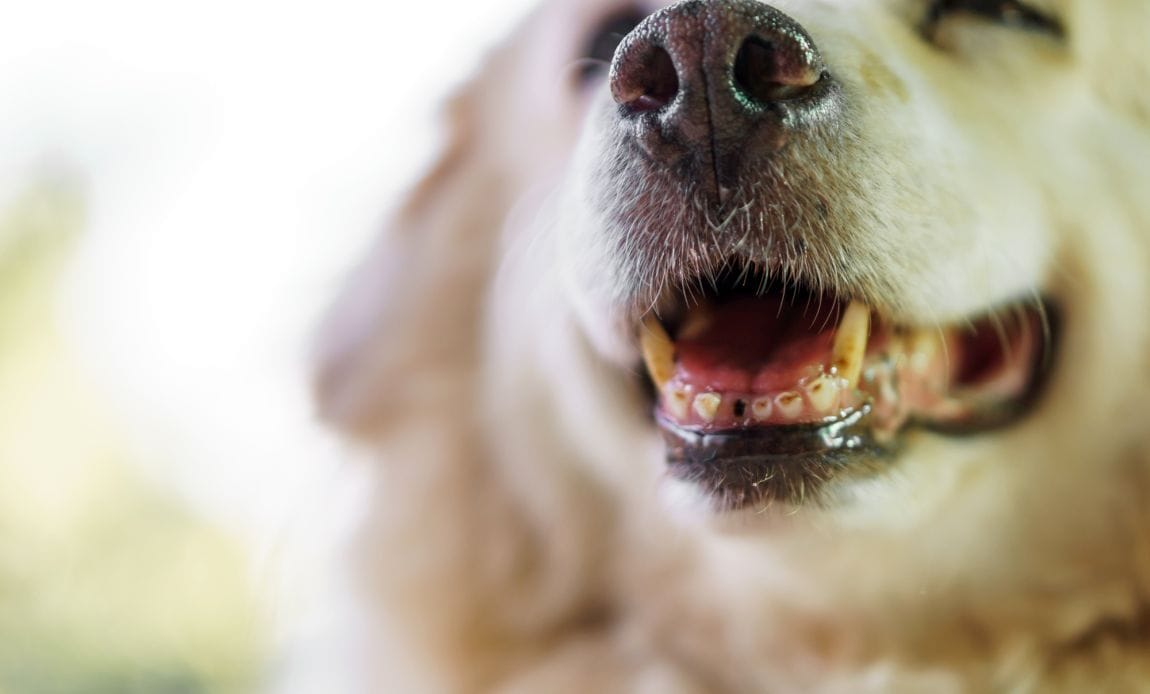
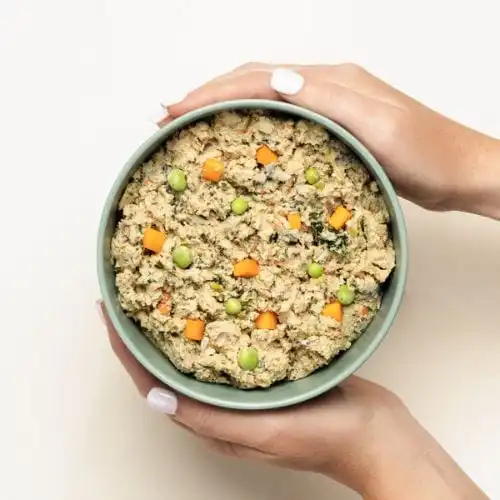
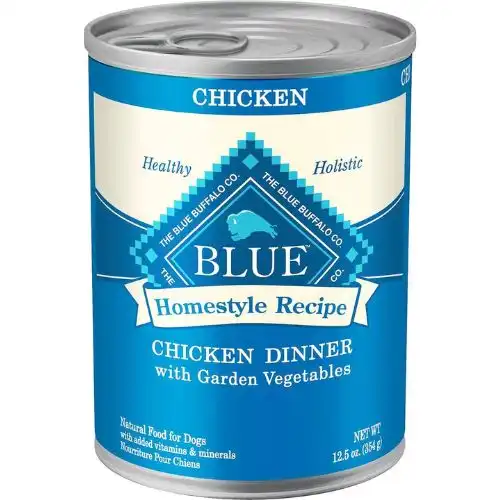
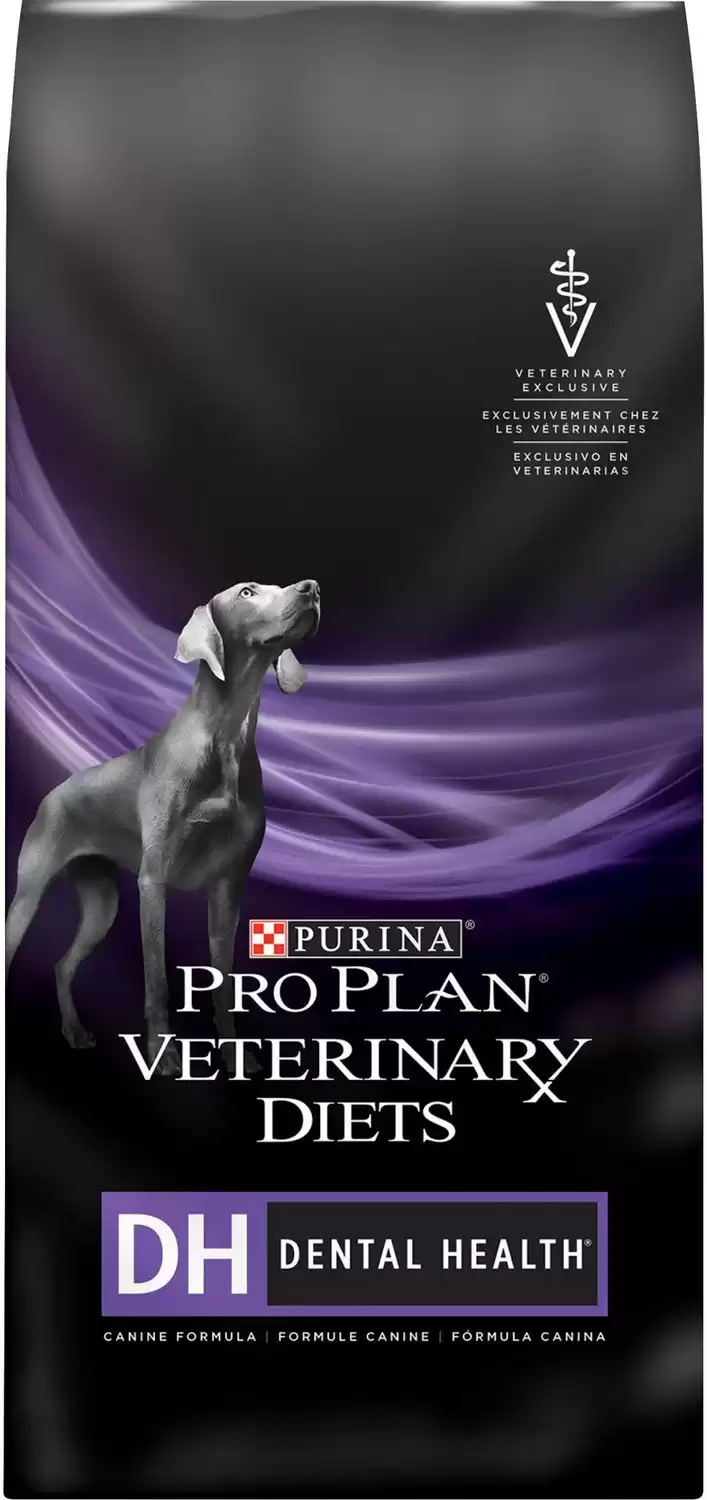
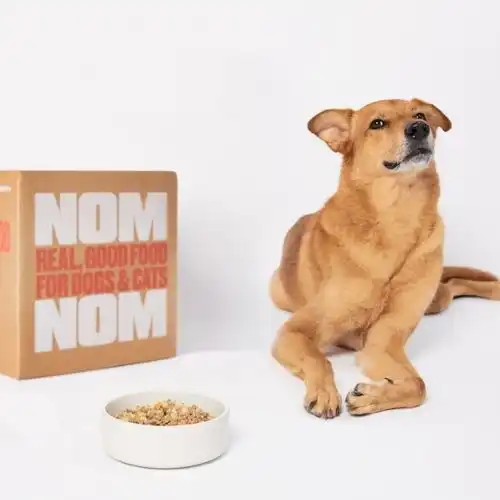
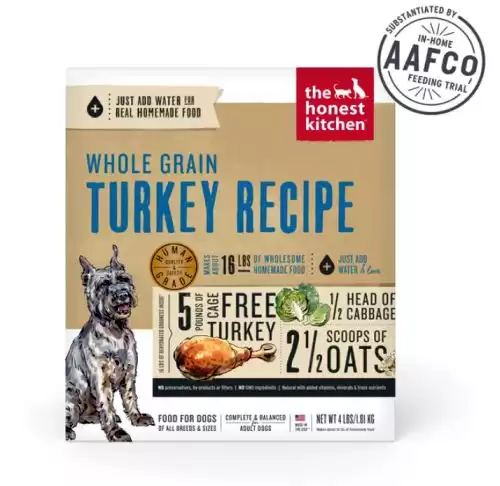
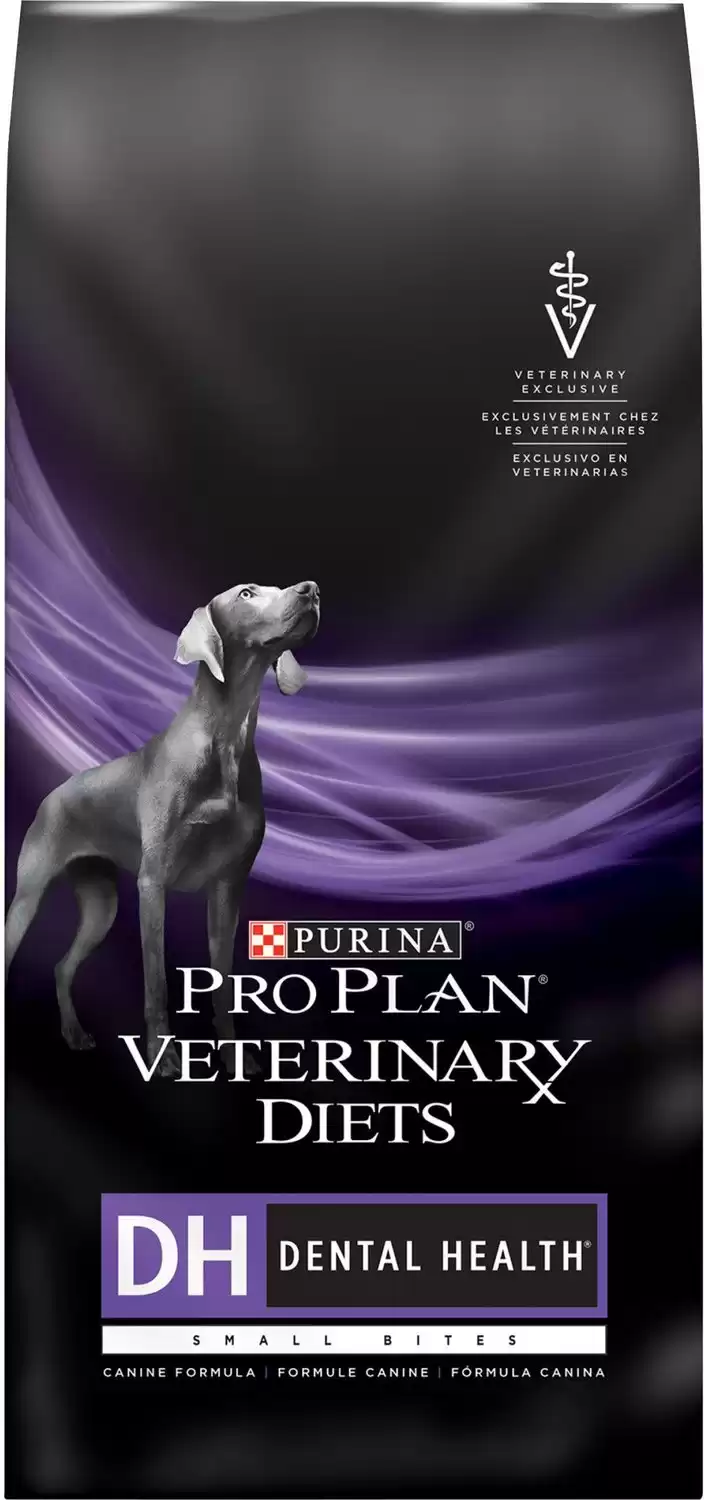
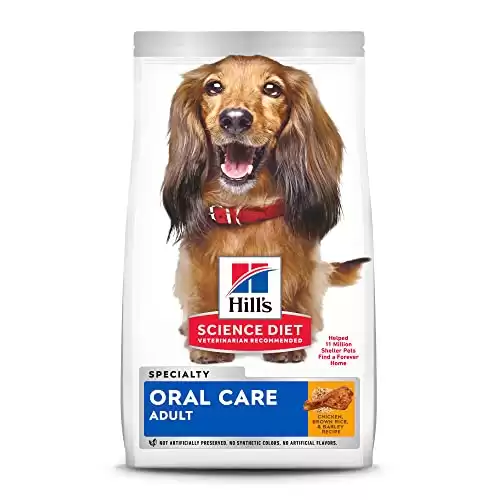

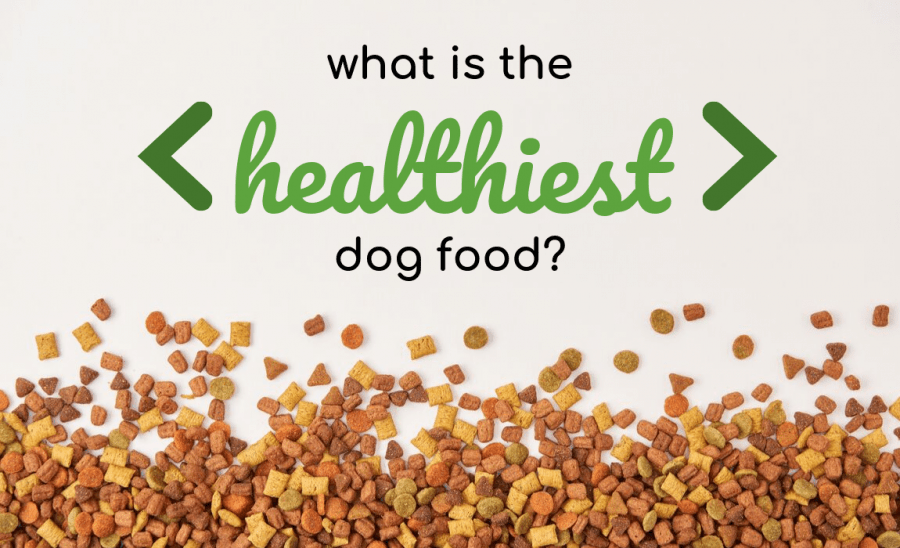


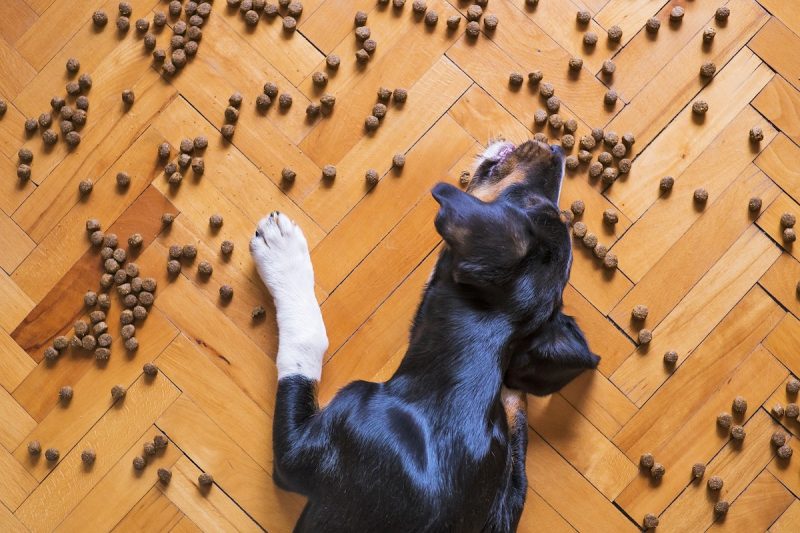
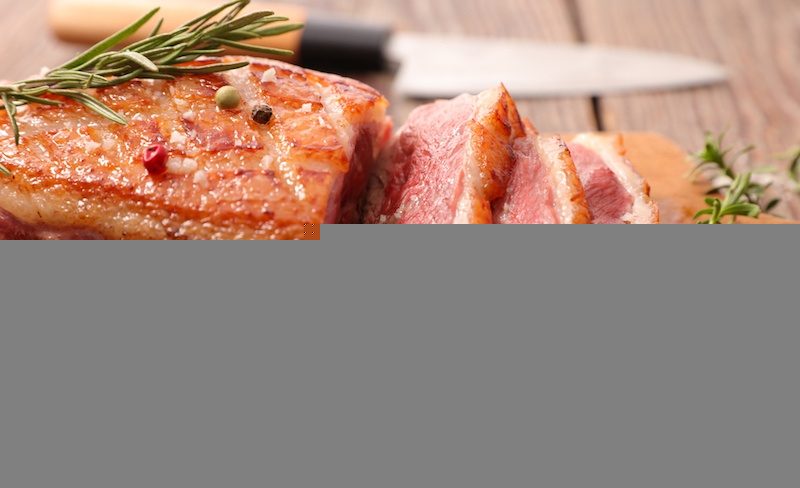
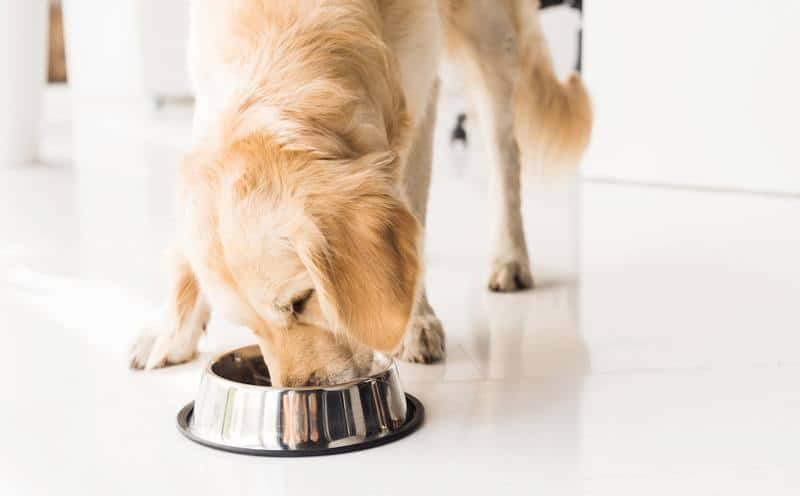
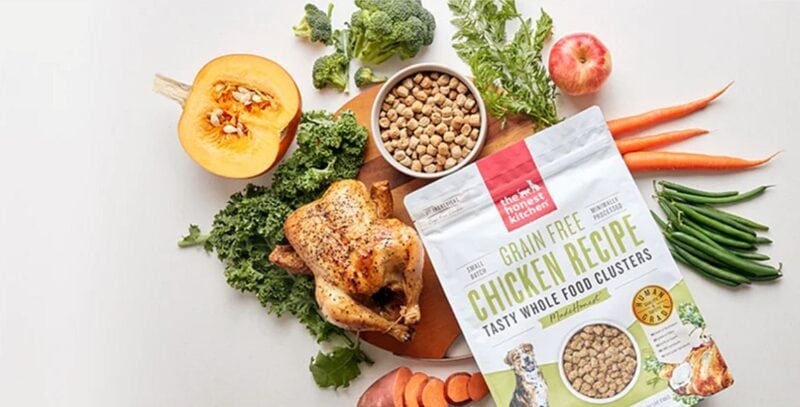
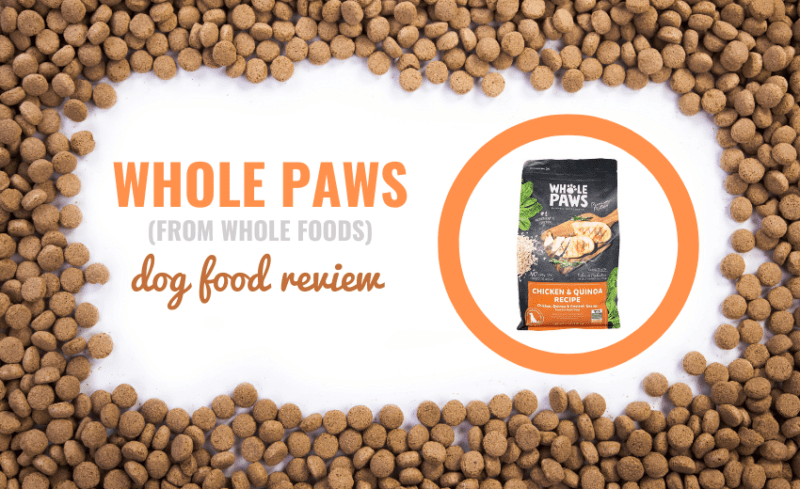
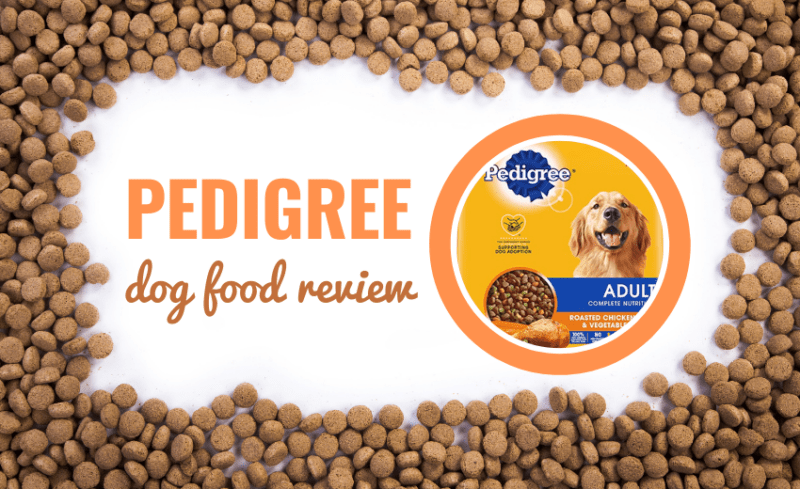
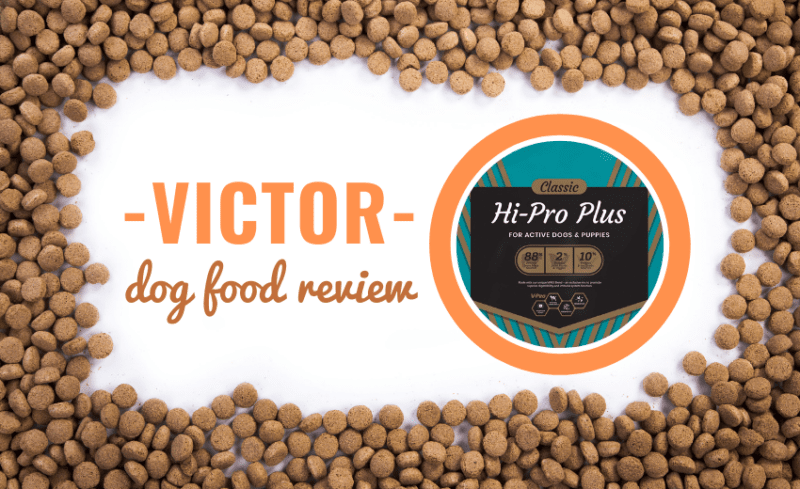

Leave a Comment